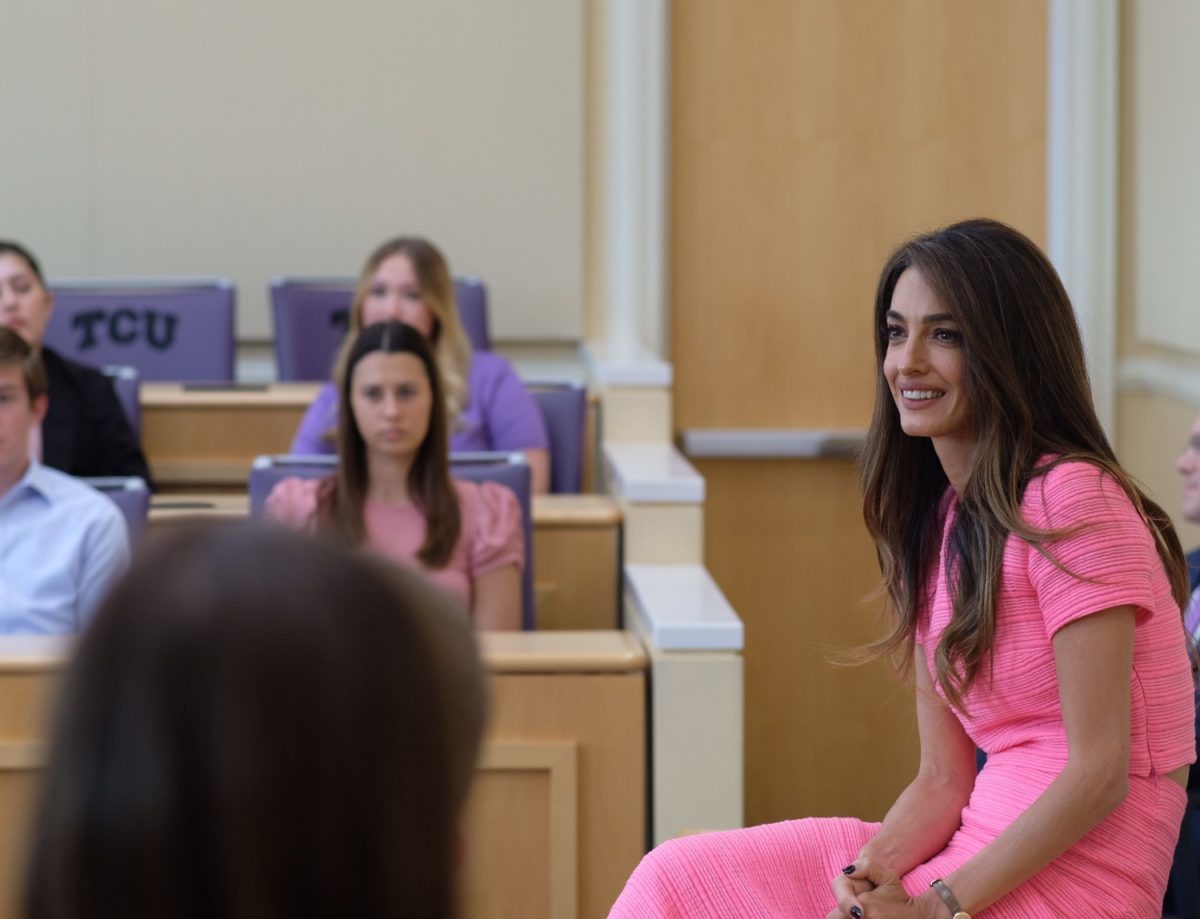Justice is not inevitable and it requires collective effort in order to reform the system, Amal Clooney said. Clooney is a barrister, or attorney, specializing in international laws and human rights. She defends clients who are victims of mass atrocities and political prisoners in cases involving freedom of expression and fair-trial rights before international courts including the International Criminal Court, the International Court of Justice and the European Court of Human Rights. She is also a visiting professor at Columbia Law School, where she co-teaches human rights courses, and she is the co-founder of the Clooney Foundation of Justice. Clooney said her pursuit of human rights began when she was a young barrister, working on a war crimes trial in The Hague in the International Criminal Court. Slobodan Milosevic, the former president of Yugoslavia, was known as the “butcher of the Balkans.” His crimes included persecution, extermination and torture during the war with Croatia. “It was a big turning point where I saw the possibility that someone who used to be the most powerful man in the state is actually in the dock and is on trial for genocide and the idea of being a young lawyer working on that was really thrilling,” Clooney said. As the co-founder of the Clooney Foundation for Justice, she is dedicated to promoting justice by ensuring that those responsible for human rights violations worldwide are held accountable. The foundation focuses on war crimes, genocide, freedom of the press, promoting the rule of law and most recently, women’s rights. Throughout the discussion, Clooney talked about her experience in representing high-profile cases, including Nobel Prize-winning journalist Maria Ressa, the Nobel Peace Prize winner Nadia Murad who advocated for justice for the Yazidi people and 126 Darfuri victims of Ali Kushayb, a Sudanese militia leader. 
Categories:
Amal Clooney inspires action for human rights
The human rights barrister spoke on Wednesday evening to a packed audience of TCU faculty, students and alumni at the 2023 Fogelson Honors Forum
By Cecilia Le, Staff Writer
Published Sep 16, 2023




